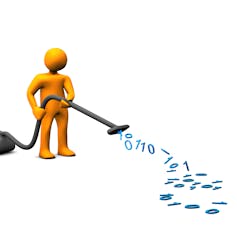Facebook’s scandals and outage test users’ frenemy relationship

Enes Evren/E+ via Getty Images
Elizabeth Stoycheff, Wayne State University
When Facebook was down for most of the day on Oct. 4, 2021, did you miss it, were you relieved or some of both? Social scientists have compiled an expansive body of research that shows how people have come to develop a love-hate relationship with the social media giant with nearly 3 billion users.
Many users have felt their relationship with the platform devolve into a messy codependence, mired by ambiguity and mistrust. For others, reliance on the platform is taken for granted, if occasionally appreciated in moments of pandemic isolation.
And then there are the revelations that the company has been lying about applying its rules differently to important people, knowingly harming teen girls and having a big vaccine misinformation problem. Adding insult to injury, Facebook locked its keys in its car and didn’t show up for over five hours. In short, Facebook is a hot mess.
All this leads to an extremely high-maintenance relationship, leaving users to wonder whether they should just move on with healthier friends. But it wasn’t always like this.
Friendly beginnings
At its launch, Facebook was one of the most authentic social networking partners. Existing online networks, like MySpace, had influential parent companies that chaperoned their platforms, pestering users with ads and gimmicks. But Facebook promised something different: a genuine connection. It was an unexploited social space to live your best life – well before anyone hashbragged it.
Still today, a friendship with Facebook comes with plenty of perks. Most importantly, it is the friend who brings everyone together. Participating in this community is shown to strengthen relationships between close friends and casual acquaintances. Individuals can bond over community causes, shared identities and amusing videos. Facebook has been credited for helping organize coalitions that took down dictators and raised millions of dollars to fight disease.
Adding to Facebook’s popularity, it lets users carefully curate a public image, emphasizing the best parts of their lives. The site has become a central source not only for information about one another, but also the world. Over half of U.S. Facebook users report regularly consuming news on the platform.
Academics friended Facebook, too. I led a study revealing that it is the most researched subject in the field of information and communication technology since 2005. This focus has led to advances in understanding online interactions, digital activism and human psychology.
Undermining trust

Alexander Limbach/Shutterstock.com
But Facebook’s stunning success has come at the expense of the privacy of its virtual friends. Its “we sell ads” business model may sound benign, but the platform collects more data and information about users than they may consciously know about themselves.
By sharing users’ data, enabling disinformation campaigns and election interference, Facebook has revealed its allegiances – and they don’t involve protecting users. Carelessness, or what increasingly looks like intentional abuse, of user data has made it difficult to trust the platform with people’s most intimate relationships.
Meanwhile, the company continues to change what information people see on its platform, which has consequences. Research finds that users can be emotionally manipulated by changes to Facebook’s algorithm. This has made the public more politically polarized and less likely to share minority views – implications that may derail democracy.
Algorithms that foster day-to-day social comparison have also taken a toll on mental health. Recent research convincingly shows that Facebook use dampens individuals’ happiness – both immediately and over the long term. Using Facebook has been linked to depression and so many other negative psychological outcomes that it inspired a summary report of 56 studies on the topic.
Frenemies for now
Despite widespread calls to #DeleteFacebook, most users have maintained their profiles and found themselves disrupted by its most recent outage. Why? Because abstaining from Facebook means giving up a network that has social currency and value. The site boasted 2.8 billion active users at the end of 2020, more than a third of the global population. As members of Congress have pointed out, Facebook has few market competitors, meaning it serves as a primary, if not the only, way for large groups to connect. It holds users together (or sometimes hostage) by maintaining relationships with all their friends.
For those who prefer Instagram or WhatsApp, know that Facebook owns those too, and is working to consolidate the technology behind them. These platforms also went down yesterday. Even people with the willpower to de-friend Facebook will still find their data swept up in content that others add to the platform and its affiliates. It’s nearly impossible to escape Facebook’s orbit.
Nevertheless, recapturing the public’s trust will require significant changes. Options for unaltered news feeds, transparent advertising, and user control of data and metadata would be good places to start. But currently, it’s unclear whether Facebook will make these changes to salvage its billions of friendships.
In the meantime, most of Facebook’s friends are updating their privacy settings and just trying to coexist.
This is an update of an article originally published on Jan. 30, 2019.
Elizabeth Stoycheff, Associate Professor of Communication, Wayne State University
This article is republished from The Conversation under a Creative Commons license. Read the original article.




